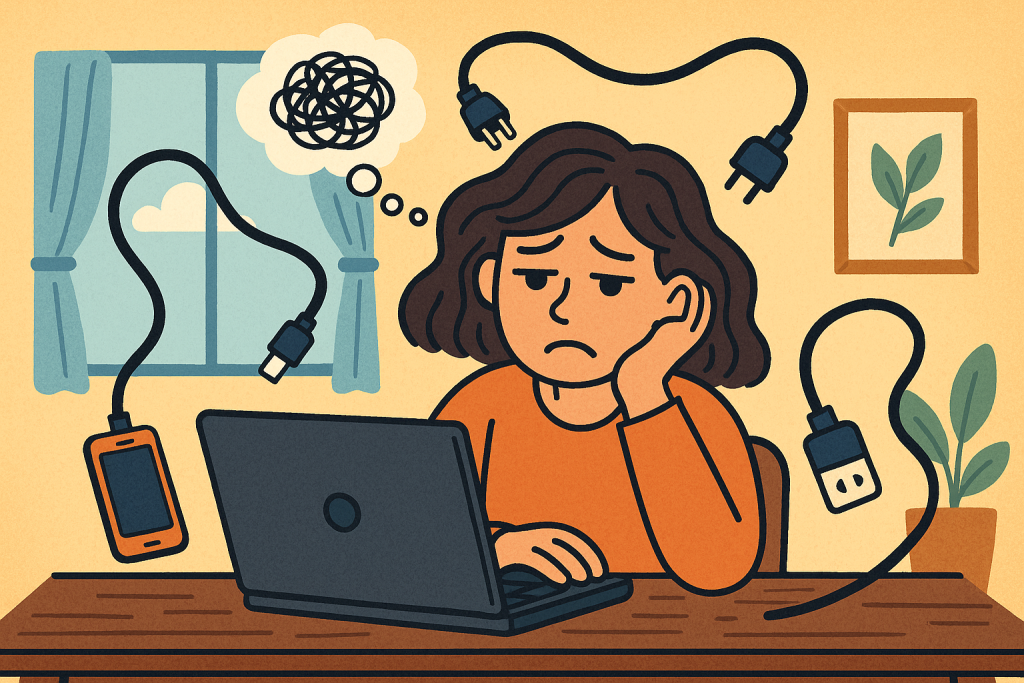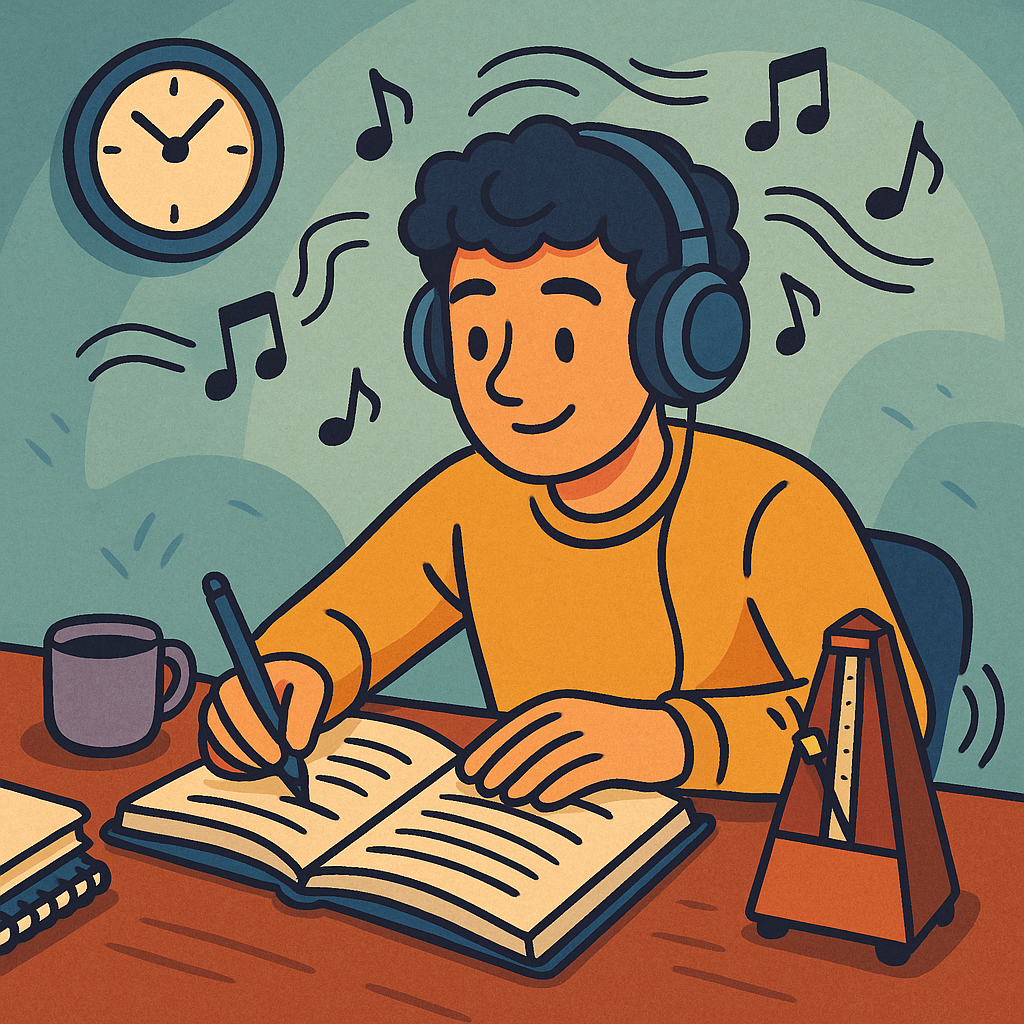Ever wake up and feel off—as if you’re just going through the motions? That disconnection you feel isn’t all in your head. Keyphrase “Why some days feel disconnected” reveals mounting research showing a mix of digital burnout, media fatigue, and creeping depersonalization are affecting daily life. Here’s what’s trending—and what you can do.

Why Some Days Feel Disconnected: 4 Emerging Trends
1. Digital Burnout & Screen Fatigue
Our lives are saturated by devices. Research shows high screen time is linked to poor sleep, anxiety, and a lower sense of wellbeing—especially in young adults.
Persistent phone buzzing, endless app notifications, and doom‑scrolling generate mental strain and emotional distraction. Even without actively using your device, the mere presence of your phone can erode conversation quality and leave you feeling unreceptive .
2. Media Fatigue
The term “media fatigue” describes the stress and overload from constant news and social media feeds. No wonder some days feel disconnected: you’re stuck in a loop of emotional exhaustion, leading to avoidance and numbness.
This fatigue contributes directly to feelings of detachment and makes it harder to engage with the real world.
3. Depersonalization & Derealization
On high‑stress days, people report feelings of “not being real,” or like they’re watching life from outside their bodies—hallmarks of depersonalization/derealization. Mayo Clinic explains it’s commonly triggered by trauma or chronic stress and can leave individuals feeling dreamlike, robotic, or disconnected from their surroundings.
Even brief episodes can disrupt your sense of self, making a normal workday feel surreal or empty.
4. “Functional Freeze” & Shutdown Mode
A newer concept gaining traction on platforms like TikTok and mental‑health discussions is “functional freeze”—where stress overload causes your brain to mute emotional connection to preserve function.
People in this state may maintain routines—work, chores, social events—but inside feel numb, paralyzed, and disconnected.
What You Can Do When Days Feel Disconnected
A. Digital Detox (Even Partial Helps)
- Set screen-free windows — e.g., no phones during meals or the first hour after waking.
- Turn off notifications or batch notifications to specific times—studies found disabling notifications made people feel less distracted, though a bit disconnected, but the benefits outweighed the costs.
- Try micro‑detoxes: go for one phone-free hour daily, building from there.
Why it works: systematic reviews cite digital detoxes reduce depressive symptoms and improve sleep, stress, and wellbeing.
B. Rebuild Social Connection
Feeling disconnected often masks social isolation. About 30% report weekly loneliness; 10% experience it daily.
To counter this:
- Plan brief in‑person meetups (coffee, walks).
- Volunteer or join communal activities—these help create intentional connection.
- Limit social media, but nurture real-world relationships.
C. Grounding Techniques for Depersonalization
If you experience derealization or depersonalization:
- 5‑4‑3‑2‑1 grounding: name 5 things you see, 4 you can touch, 3 you hear, 2 you smell, 1 you taste.
- Move your body: walk, stretch, change environment.
- Talk it out: describing what you tolerate (even aloud) can bring you back to the present moment.
Depersonalization needs care—if it’s prolonged or distressing, psychotherapy (e.g., CBT or trauma therapy) is often required.
D. Break Functional Freeze
- Break tasks into tiny steps: “just open an email” instead of “answer inbox.”
- Set structure: schedule small wins early in the day.
- Self‑compassion: acknowledge that your brain is just overwhelmed.
- Ask for help: talk to friends, family, or a therapist if basic tasks feel paralyzing.
E. Media Management
- Schedule media-free days.
- Limit news sources to one daily summary.
- Choose quality over quantity, favoring long‑form or trusted outlets rather than scrolling feeds.
Sample Daily Routine to Reconnect
- Morning (no screens): wake up, drink water, stretch, eat breakfast, then check messages
- Mid‑morning breaks: mini‑digital pauses—walk, breathe, write on paper
- Lunchtime screen break: engage in conversation, take a walk
- Afternoon reminder: log off notifications for at least one hour
- Evening rituals: no social media past 7 pm — read, cook, or chat with someone
- Weekly reflection: journal on how disconnected days felt, and track improvements
Expert Insights & Research
- A Nature Human Behaviour study linked rising screen time with decreased psychological well‑being in young adults.
- CDC-backed research shows loneliness is tied to serious health issues—heart disease, stroke, even early mortality .
- Meta‑analysis of digital detoxes found meaningful reduction in depressive symptoms (SMD –0.29), though stress and life satisfaction gains were less clear.
Final Thoughts
Days that feel disconnected aren’t just “bad moods”—they may reflect wider forces at play: the pressure of always‑on digital life, emotional overload, and even professional multitasking demands. And those vanishing moments of aliveness are what we must reclaim.
By unplugging—or at least reducing your digital intake—cultivating genuine connection, grounding yourself, and showing self‑compassion, you can reclaim presence and turn those fuzzy days into meaningful ones again.
References
1. Mayo Clinic. (2023). Depersonalization–Derealization Disorder – Symptoms and Causes.
This source provides a comprehensive overview of transient feelings of unreality and disconnection—relevant to understanding why some days may feel disconnected. https://www.mayoclinic.org
2. Calm Blog. (2023). Feeling disconnected? 10 ways to reconnect with yourself.
https://www.calm.com/blog/feeling-disconnected
3. Health.com. (2023, September 28). What Is Derealization?
https://www.health.com/derealization-7971816






